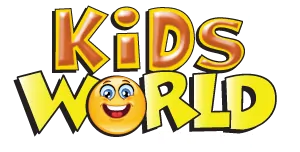Learn English » English Literature » Poem 'Warning to Parents' by Elizabeth Jennings
Warning to Parents
Save them from terror; do not let them see
The ghost behind the stairs, the hidden crime.
They will, no doubt, grow out of this in time
And be as impervious as you and me.
Be sure there is a night-light close at hand;
The plot of that old film may well come back,
The ceiling, with its long uneven crack,
May hint at things no child can understand.
You do all this and are surprised one day
When you discover how the child can gloat
On Belsen and on tortures – things remote
To him. You find it hard to watch him play
With thoughts like these, and find it harder still
To think back to the time when you also
Caught from the cruel past a childish glow
And felt along your veins the wish to kill.
Fears are more personal than we had guessed –
We only need ourselves; time does the rest.
Analysis
The speaker of the poem speaks to parents and asks them to protect their children from being exposed to violence and terror and to use night lights so that the children will not be scared. But in spite of these efforts, parents will one day discover that their children will engage in cruelty and violence since these are instinctual.
Summary
The poem begins with an advice to parents about what children should not be exposed to: “ghost behind the stairs” and the “hidden crime”. Nevertheless, children will grow out of this stage of irrational fears and become “impervious” to them, as time passes. But till then, one should make sure that there is some light for children even at night, because they might be reminded of some movie scenes they watched long back. They could also imagine that some hideous things may be lurking behind the crack on the ceiling.
The poet goes on to say that however much we shield children from all these, they discover evil by themselves; even “gloat” over these evil thoughts. As parents it is difficult to think of those times when even in late childhood, they would have felt “the wish to kill”.
The poet concludes that “fears are more personal than we had guessed”: in other words, our fears, rational and irrational, are not really a product of our surroundings or bringing up; rather they are inborn and instinctual. “We only need ourselves; time does the rest.” Even if we are brought up in the best possible environment, we will develop fears, violence and an affinity to evil, because these are instinctual to us. It is only a matter of time before these affinities develop fully and come to light.
The poet’s warning to parents is that when children are very small, they should be shielded from evil influences. However, parents should be prepared to accept that as they grow up, children will discover affinities towards evil and may even “gloat” on hearing of tortures done in remote places.
Language and imagery
The poem has the rhyme scheme of abba cddc etc. The first and second stanzas convey the image of vulnerable children who need to be protected. There are metaphors in the poem: the ghost behind the stairs is a symbol of childhood fear whereas the “hidden crime” is a symbol of violence. The theme of violence is taken to an extreme in the image of “Belsen” which was a Nazi concentration camp in Germany.
Was this article useful? What should we do to improve your experience? Share your valued feedback and suggestions!
Help us to serve you better. Donate Now!

